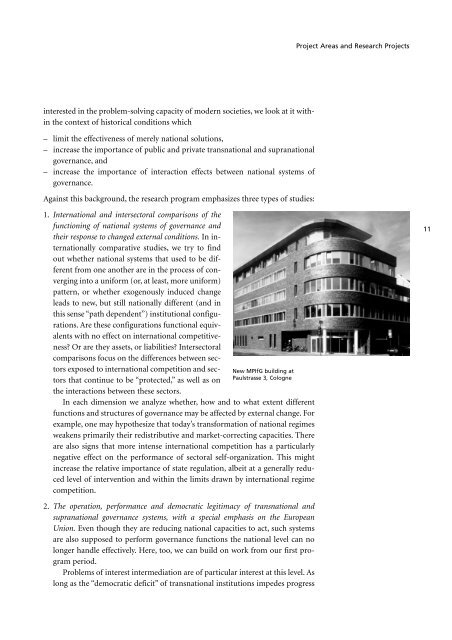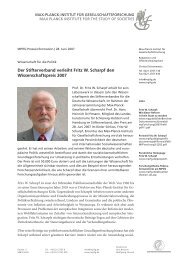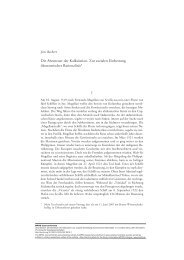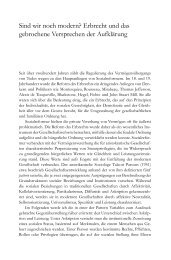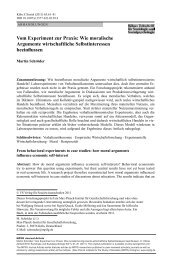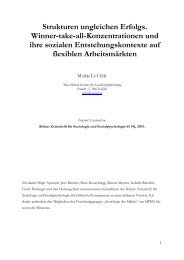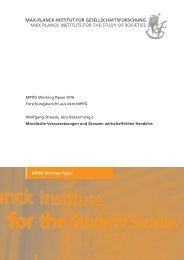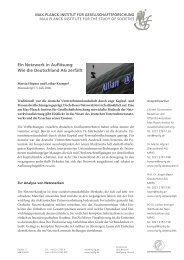Publications - MPIfG
Publications - MPIfG
Publications - MPIfG
You also want an ePaper? Increase the reach of your titles
YUMPU automatically turns print PDFs into web optimized ePapers that Google loves.
interested in the problem-solving capacity of modern societies, we look at it within<br />
the context of historical conditions which<br />
– limit the effectiveness of merely national solutions,<br />
– increase the importance of public and private transnational and supranational<br />
governance, and<br />
– increase the importance of interaction effects between national systems of<br />
governance.<br />
Against this background, the research program emphasizes three types of studies:<br />
1. International and intersectoral comparisons of the<br />
functioning of national systems of governance and<br />
their response to changed external conditions. In internationally<br />
comparative studies, we try to find<br />
out whether national systems that used to be different<br />
from one another are in the process of converging<br />
into a uniform (or, at least, more uniform)<br />
pattern, or whether exogenously induced change<br />
leads to new, but still nationally different (and in<br />
this sense “path dependent”) institutional configurations.<br />
Are these configurations functional equivalents<br />
with no effect on international competitiveness?<br />
Or are they assets, or liabilities? Intersectoral<br />
comparisons focus on the differences between sectors<br />
exposed to international competition and sectors<br />
that continue to be “protected,” as well as on<br />
the interactions between these sectors.<br />
New <strong>MPIfG</strong> building at<br />
Paulstrasse 3, Cologne<br />
In each dimension we analyze whether, how and to what extent different<br />
functions and structures of governance may be affected by external change. For<br />
example, one may hypothesize that today’s transformation of national regimes<br />
weakens primarily their redistributive and market-correcting capacities. There<br />
are also signs that more intense international competition has a particularly<br />
negative effect on the performance of sectoral self-organization. This might<br />
increase the relative importance of state regulation, albeit at a generally reduced<br />
level of intervention and within the limits drawn by international regime<br />
competition.<br />
2. The operation, performance and democratic legitimacy of transnational and<br />
supranational governance systems, with a special emphasis on the European<br />
Union. Even though they are reducing national capacities to act, such systems<br />
are also supposed to perform governance functions the national level can no<br />
longer handle effectively. Here, too, we can build on work from our first program<br />
period.<br />
Problems of interest intermediation are of particular interest at this level. As<br />
long as the “democratic deficit” of transnational institutions impedes progress<br />
Project Areas and Research Projects<br />
11


